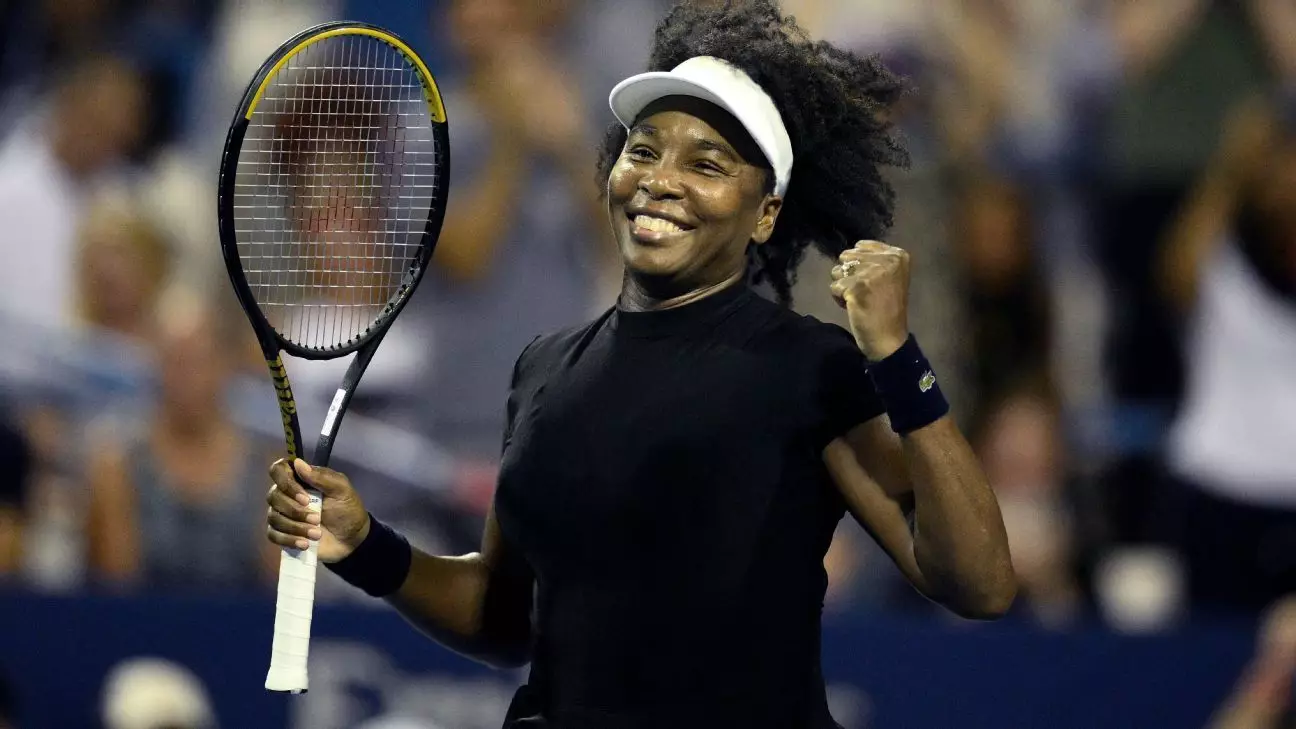Venus Williams’ upcoming appearance at the US Open marks an extraordinary chapter in her legendary career, not merely because of her age but due to the spirit of perseverance she embodies. Stepping back onto the Grand Slam stage after a two-year hiatus is a testament to her enduring passion and unyielding dedication to tennis. While many athletes fade away with the passing years, Williams defies the conventional narrative by making a deliberate and confident return. Her selection through a wild-card invitation underscores her significance within the sport and her ongoing influence beyond the court.
This comeback is more than just a numerical milestone; it is a powerful statement about resilience and the refusal to accept age as a barrier. At 45, Venus will be the oldest singles player since Renée Richards competed in 1981—a remarkable feat that reminds us that age can be a number, but it doesn’t define potential. Her participation challenges stereotypes and inspires a new generation to pursue athletic excellence regardless of societal expectations related to age and longevity.
Legacy and Evolution: More Than Just Achievements
Venus Williams’ career adorned with 23 Grand Slam singles titles and numerous doubles victories with Serena is a testament to her sporting dominance and unwavering competitiveness. Yet, her journey is also about evolution. Her recent physical struggles, including surgery to remove uterine fibroids, exemplify the physical toll of a career at the top. Despite setbacks, Williams has demonstrated resilience, bouncing back with a reflective maturity that imbues her current return with a deeper meaning.
Her performances at the DC Open—becoming the oldest woman to win a tour-level singles match since Martina Navratilova—are not merely about records but about defying expectations. These achievements serve as triumphant narratives of persistence, and her candidness about balancing health, career, and personal life offers a refreshing perspective in professional sports, often marred by stereotypes about aging athletes.
Williams’ journey illustrates that resilience isn’t simply bouncing back from setbacks but continuously reinventing oneself amidst adversity. Her return embodies a fearless attitude, unshaken by the critics or the daunting prospect of facing competitive tennis at an age when most retire. Instead, she claims her place through grit and unabated passion, reinforcing her status as an enduring icon of strength and determination.
Beyond Tennis: The Broader Impact of Williams’ Comeback
Venus Williams returning to singles competition at the US Open signifies much more than athletic pursuit; it is a celebration of perseverance and the human capacity to redefine limits. Her presence on the court sparks conversations about aging, health, and resilience, which resonate beyond tennis circles. Her openness about her health challenges and her playful comments regarding insurance coverage humanize her, breaking down barriers between athletes and fans.
Her engagement in mixed doubles with Reilly Opelka exemplifies a strategic yet authentic approach to re-entering competitive play. It’s a calculated move that balances the excitement of a comeback with her realistic assessment of her evolving physical state. Her willingness to participate while acknowledging her limitations reaffirms that success is not solely measured by titles but by persistence and passion.
Furthermore, her return inspires many—young athletes, older competitors, and everyday individuals—by demonstrating that determination doesn’t diminish with age. She exemplifies that pursuing passions and striving for excellence remain vital, even in the twilight years of a career. Venus Williams is not just returning to tennis; she is invigorating the sport with her indomitable spirit and reminding us all that greatness can be rekindled at any stage of life.


Leave a Reply